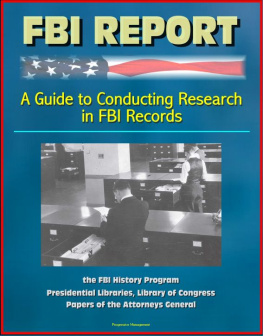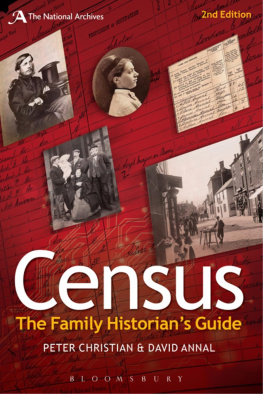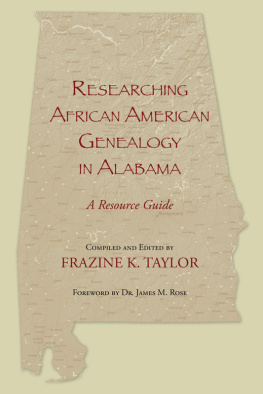FBI Report: A Guide to Conducting Research inFBI Records, the FBI History Program - Presidential Libraries,Library of Congress, Papers of the Attorneys General
U.S. Government, Federal Bureau ofInvestigation (FBI)
* * * * * * * * * * * *
Smashwords Edition
Copyright 2013 Progressive Management
Questions? Suggestions? Comments? Concerns?Please contact the publisher directly at
bookcustomerservice@gmail.com
Remember, the book retailer can't answer yourquestions, but we can!
* * * * * * * * * * *
Smashwords Edition, License Notes
This ebook is licensed for your personalenjoyment only. This ebook may not be re-sold or given away toother people. If you would like to share this book with anotherperson, please purchase an additional copy for each person youshare it with. If you're reading this book and did not purchase it,or it was not purchased for your use only, then you should returnto Smashwords.com and purchase your own copy. Thank you forrespecting the hard work of this author.
* * * * * * * * * * *
This is a privately authored news service andeducational publication of Progressive Management. Our publicationssynthesize official government information with original material -they are not produced by the federal government. They are designedto provide a convenient user-friendly reference work to uniformlypresent authoritative knowledge that can be rapidly read, reviewedor searched. Vast archives of important data that might otherwiseremain inaccessible are available for instant review no matterwhere you are. This e-book format makes a great reference work andeducational tool. There is no other reference book that is asconvenient, comprehensive, thoroughly researched, and portable -everything you need to know, from renowned experts you trust. Forover a quarter of a century, our news, educational, technical,scientific, and medical publications have made unique and valuablereferences accessible to all people. Our e-books put knowledge atyour fingertips, and an expert in your pocket!

* * * * * * * * * * * *
CONTENTS
* * * * ** * * * * * *
* * * * * * * * * * * *
FBI HistoryProgram
Office of Public Affairs
Washington, DC 20535
March 1, 2010
* * * * * * * * * * * *
Introduction
FBI Records Overview
A. A Brief History of the FBI and ItsRecords
B. The FBI and the National Archives andRecords Administration
Access to FBI Records and Other Records
A. What are FBI Records?
1. Purpose and Scope of FBI Records
2. To Whom are FBI Records Useful?
B. Where can FBI Records be Found?
1. Records in the Custody of the FBI
2. Government Archives
3. Other Repositories
Brief Descriptions of Major Collections ofFBI Records and Their Holdings
A. National Archives and RecordsAdministration (NARA)
1. Record Group 65
2. Notable NARA Collections of FBIRecords
3. Other NARA Record Groups with SignificantFBI Records
4. NARA Regional Branch Archives
5. Congressional Records
6. Presidential Libraries
B. Library of Congress
C. Papers of the Attorneys General
Other Significant FBI-Related Collections
A. University and Other LibraryCollections
B. Online Collections
Appendices
A. Making a Freedom of Information/PrivacyAct Request
B. How to Cite FBI Records
Bibliography
* * * * * * * * * * * *
Introduction
A Guide to Conducting Research in FBI Recordsexplains how to find and use FBI records for research purposes. Itis designed for scholars, genealogists, journalists, and others whowish to study the FBI and its work.
This publication replaces the first guidecreated in the mid-1980s and revised in the early 1990s. Our hopeis that this updated edition will help the public make better useof the wealth of FBI records made available in recent years andbetter understand the evolving history of the FBI, which marked its100th anniversary in July 2008.
The FBI has long been of interest toresearchers, given the importance and scope of its mission and therange of historical events that it has been involved in over theyears. Access to our records has increased significantly over thelast four decades, especially with the 1976 amendments to theFreedom of Information Act (FOIA). Records concerning the FBI alsohave been made available under several other laws and through othervenues.
This guide begins by explaining what an FBIrecord is, what researchers can learn from these records, and howthey can be used. It also gives a brief history of our records andtheir role and development in our work.
The guide then details how researchers maygain access to the Bureau's recordsboth those held by the Bureauand those residing in other institutions. A brief discussion of theFBI's Record/Information Dissemination Section follows, describinghow the FBI handles Freedom of Information Act and Privacy Act(FOI/PA) requests and why certain information is withheld frompublic release. Also included is a brief description of majorcollections of FBI records held at institutions like the NationalArchives and Records Administration (NARA), the Library ofCongress, and other institutions. Significant online collectionsare also noted.
FBI Records Overview
A. A Brief History of the FBI and ItsRecords
The mission of the FBI is to protect anddefend the United States against terrorist and foreign intelligencethreats, to uphold and enforce the criminal laws of the UnitedStates, and to provide leadership and criminal justice services tofederal, state, municipal, and international agencies andpartners.
The scope of the FBI's responsibilities iswide, covering investigations into domestic and internationalterrorism, foreign counterintelligence, cyber crime, publiccorruption, civil rights violations, white-collar and organizedcrime, violent crime and kidnapping, and other diverse crimes. TheBureau's records detail these responsibilities and the FBI'sperformance in meeting its mission over the years.
The FBI originated from a force of specialagents created in the U.S. Department of Justice (DOJ) in 1908 byAttorney General Charles Bonaparte. In 1909, this investigativeservice became known as the Bureau of Investigation (BOI). In 1935,it was re-named the Federal Bureau of Investigation, or FBI.
In its early years, the FBI experimented withseveral different record-keeping systems.1 The first, establishedat its creation, consisted of straight numerical cases1 to 42,975.This file was later renamed the Miscellaneous File and wasdiscontinued in 1922. It was supplemented by several other files.One encompassed records amassed during the Bureau's investigationsrelated to a 1910 anti-prostitution measure known as the Mann Act.These files were later destroyed. Another file dealt largely withNeutrality Act investigations and was called the Old Mexican File,since most of these matters had to do with attempts to overthrowthe Mexican government. The third file was called the Old GermanFile and dealt with espionage, sabotage, and subversioninvestigations arising out of World War I. The Miscellaneous, OldMexican, and Old German Files are available in multiple locationsand on microfilm or digitally from commercial entities.
In early 1920, the Bureau experimented with asource file system, where documents were organized chronologicallybased on the office in which they were produced. This approach wasquickly abandoned as unworkable. These files are known as BureauSection Files, and like those of the Bureau's firstdecade-and-a-half, are available in microfilm or digital form. InSeptember 1920, the BOI and DOJ files were consolidated.
Next page

















